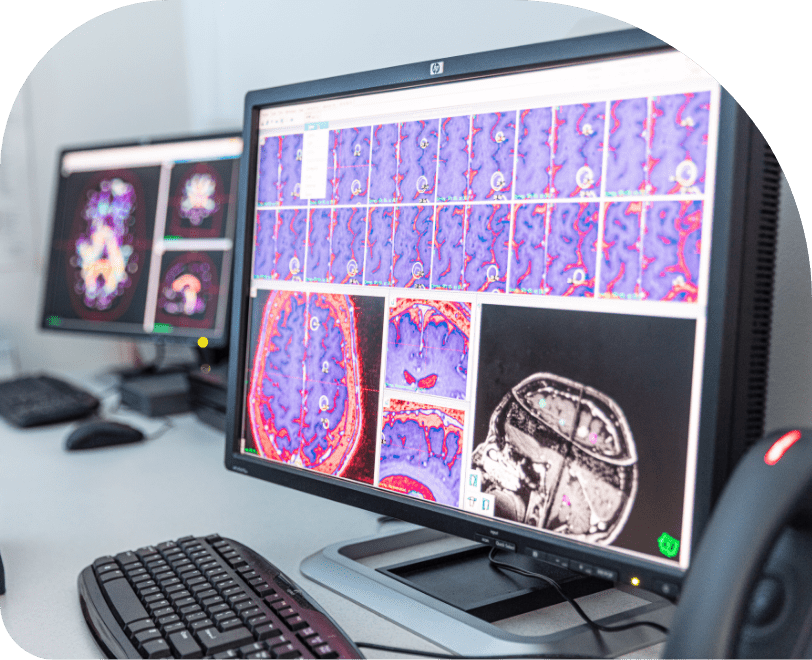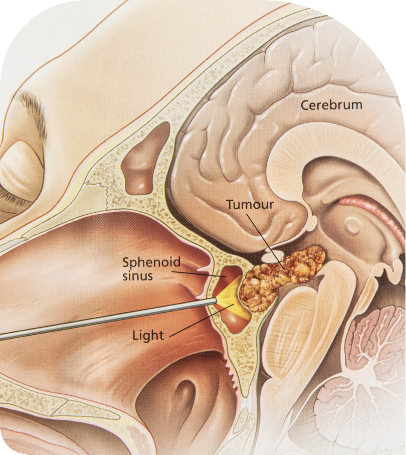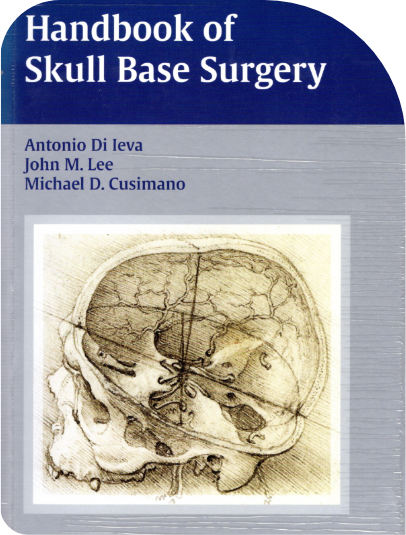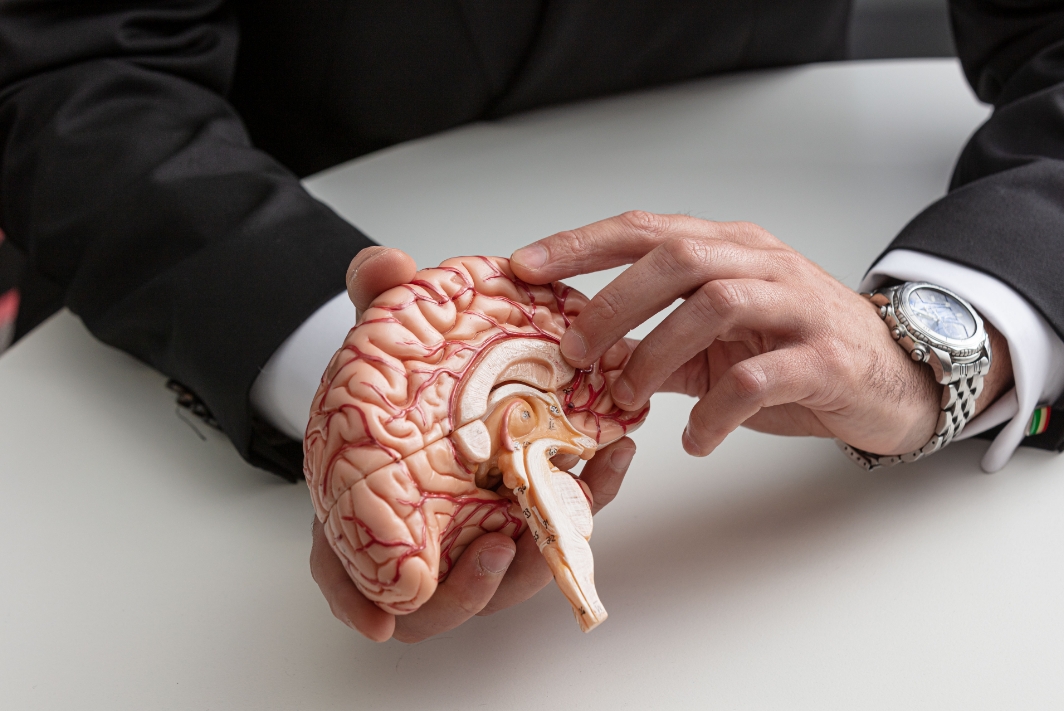Brain Tumours

Neurosurgeons at Macquarie Neurosurgery & Spine are at the forefront of brain tumour surgery in Australia.
Using the latest surgical equipment and techniques, our neurosurgeons form part of a multi-disciplinary team that offers world-class, patient-centred care.
Specialist tumour surgeons at Macquarie Neurosurgery & Spine provide treatment for both benign and malignant tumours, and they care for hundreds of patients each year.
What are the most common types of brain tumours seen by the specialists at Macquarie Neurosurgery & Spine?

Our specialists manage all types of brain tumours in adults. Tumours commonly seen include:
- Meningioma
Meningiomas arise from the membranes surrounding the brain. Most are not cancerous, but they can cause problems if they put pressure on surrounding brain tissue. - Glioma
This tumour originates from glial cells, which are cells that support and protect nerve cells. Gliomas may be low-grade (slow growing) or high-grade (more aggressive). - Metastasis
A brain metastasis occurs when cancer from elsewhere in the body, spreads to the brain. - Pituitary tumours
These are tumours that arise from the pituitary gland in the brain. Most pituitary tumours are not cancerous.
What are the symptoms of a brain tumour?
The symptoms of a brain tumour depend on its location and size. Common symptoms include:
- Headaches – Headaches that are becoming more frequent and severe, or those of recent onset, may require investigation.
- Nausea or vomiting – Unexplained nausea or vomiting could be a sign of increased pressure on the brain due to a brain tumour.
- Vision problems – These could include blurred or double vision, or loss of the peripheral (outer) visual field.
- Seizures – New-onset seizures could be caused by a brain tumour.
- Weakness or sensation loss – This may occur on one side of the body, and unlike a stroke, could develop gradually.
- Balance problems
- Speech difficulties
- Confusion
In some cases, a brain tumour is discovered incidentally in a person who has no symptoms (for example, when a CT scan is done after a head injury).

How are brain tumours treated?
Treatment of a brain tumour is determined by:
- Tumour type
- Nature of the tumour cells (for example, low grade vs high grade)
- Tumour location and size
- The patient’s age, existing medical conditions and general health
Most benign tumours will require surgical removal. Some non-cancerous tumours may be managed with close monitoring only, especially if they are not causing any symptoms.
Treatment of malignant brain tumours may involve surgery, radiation therapy, chemotherapy, or a combination of these treatments.
How is modern brain tumour surgery done?
Tumour surgery specialists at Macquarie Neurosurgery & Spine use the latest surgical techniques to ensure that you receive the best possible care.
Some of the modern techniques used by our neurosurgeons are:
- Minimally invasive and endoscopic surgery
Minimally invasive (“keyhole”) surgery uses smaller incisions than traditional surgery, and has the advantages of a quicker recovery and a lower likelihood of complications. An endoscope, which is a tiny video camera on the end of a flexible tube, may be used to access the brain during minimally invasive surgery. - Computer-assisted brain surgery
Modern software can be used in conjunction with MRI and CT Imaging, to provide the neurosurgeon with precise information about the region they are operating on, and the location of nerve fibres around the tumour. - Awake brain surgery
Awake brain surgery may be used to ensure that critical parts of the brain are avoided during removal of a brain tumour. During this type of surgery, the patient is awake for part of the procedure. The patient is asked to perform simple tasks, such as talking, while the neurosurgeon uses complex technology to map the functional areas of the brain. These functional areas can then be avoided during removal of the tumour.
At Macquarie Neurosurgery & Spine, the patient can be assured to receive care from experienced tumour specialists, using the latest available technology. Compassionate, patient-centred care can be expected from a multi-disciplinary team that will support each patient throughout their health journey.
Surgery in and around the skull base | by Prof Di Ieva


